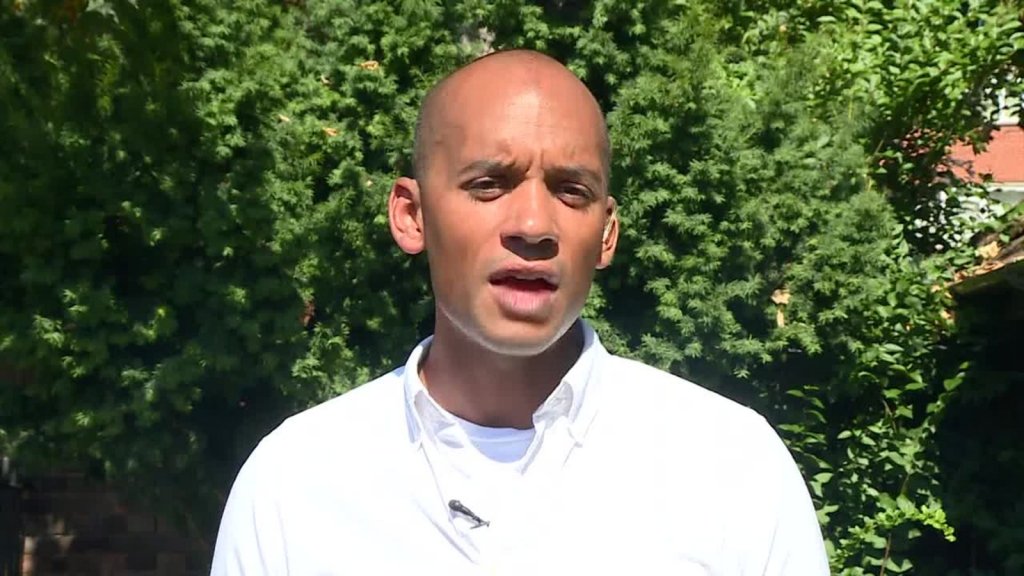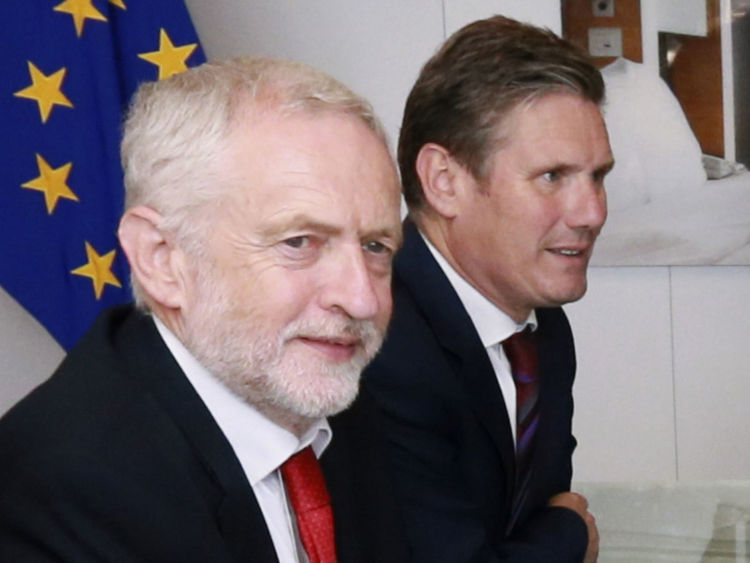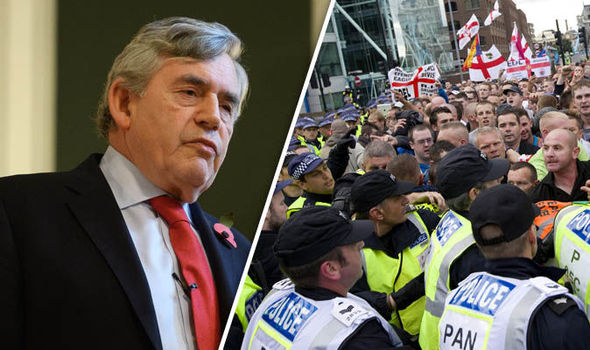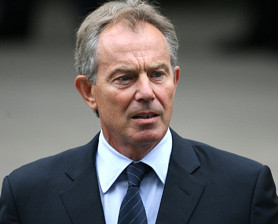Labour policy shift on single market and customs union
The party’s commitment to continued membership of the single market and customs union is being seen as a coup for Keir Starmer.

Tamara Cohen
Political Correspondent
Labour’s pro-Europeans regard the party’s Brexit policy shift as a win in the power struggle over its position on the EU.
Sir Keir Starmer, the shadow Brexit secretary, has put an end to weeks of mixed messages by setting out that the party wants to stay in the single market and customs union at least for the next few years.
A Labour government would keep all the current arrangements during a transition period – which all parties now agree is desirable – and potentially beyond that point. It is a significant shift.
Two months ago, Jeremy Corbyn said Britain would leave the single market, as it is dependent on EU membership.
He also sacked three members of his frontbench for backing an amendment to keep Britain in it.
That position was rapidly undermined by members of his own frontbench, including Diane Abbott, who said days later that in fact nothing was “off the table” with the single market.

Video: Umunna urges Labour to go further on Brexit shift
With MPs heading back to Westminster within days to start voting on the next stage of the EU Withdrawal Bill on 11 September, some clarity was sorely needed.
The new position brings the leader to that of his MPs and the party’s young supporters.
It is also a position which enjoys the support of many in the business community, who have been increasingly vocal in their Brexit warnings since the election.
During the campaign, Labour was able to make a virtue of its fence-sitting, trying to appease both its Leave and Remain voters by talking without commitment about a “jobs-first Brexit” and securing “maximum access” to the single market.
The fudge couldn’t hold and in recent weeks shadow ministers have ducked and dived during broadcast interviews to avoid questions on the party’s position on the single market and customs union.
As a result, intense discussions have been held between the leader’s office and shadow cabinet ministers during the past two weeks, with agreement reached towards the end of this week after what insiders described as some “to-ing and fro-ing”.
The announcement is being seen as a coup for Mr Starner, who has been pushing behind the scenes for this position and was supported by others in the top team, including shadow foreign secretary Emily Thornberry.
Certainly, the election result has strengthened their hand dramatically.

Image: Labour leader Jeremy Corbyn and Sir Keir Starmer at a meeting in Brussels in July
Before 8 June, Labour MPs felt they were holding together a fragile coalition, with angry Leave voters potentially planning to abandon the party for good.
While they did lose some backing from working-class voters, Labour not only picked up support from younger voters hoping for a soft Brexit, but Leave-supporting heartlands stayed loyal and backed Jeremy Corbyn’s policies.
The leadership clearly calculate they can now risk shifting position, in order to put maximum pressure on the Government as it tries to strike an audacious deal whereby Britain would leave the customs union in March 2019 and sign trade deals with other countries – but retain its benefits.
Those close to Mr Corbyn reject the idea that he has conceded any ground to the “soft Brexit” wing.
A source said he has always wanted to avoid a “cliff-edge exit” given his belief that it is “fanciful” a bespoke deal will be in place by March 2019.
Some Tory MPs would agree, although Labour has not yet opened any lines of communication with them.
Tories are unlikely to vote for any Labour amendments to the forthcoming legislation, but the advocates of a softer approach in Theresa May’s party are now in a strong position to force concessions from her.
The Conservatives say Labour have no answers on immigration and have simply kicked the can down the road.
But the pressure is on for Brexit Secretary David Davis as he heads to Brussels for the next round of negotiations in which he hopes to convince a sceptical Michel Barnier to open talks about trade before the divorce bill is agreed.
Content retrieved from: http://news.sky.com/story/labour-policy-shift-on-single-market-and-customs-union-a-win-for-soft-brexiteers-11008751.


